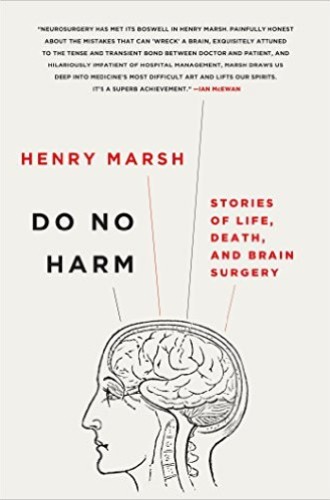Do No Harm, by Henry Marsh
In his introductory Christian ethics courses, Stanley Hauerwas contrasts the formation needed to become a physician with that needed to become a minister. He claims that “no one believes that in our day an inadequately trained priest might damage their salvation; but people do believe an inadequately trained doctor can kill them.”
Henry Marsh’s memoir of his nearly three decades as a neurosurgeon shows vividly how even an adequately trained doctor who operates on the brain will kill some patients in the course of a career and “wreck” many others. Marsh’s detailed, suspenseful accounts of operations kept me briskly turning pages, wondering each time if this patient would become one of the wrecked. And the deeper story of Marsh’s transformation from a daring, brash surgeon to a wiser, more cautious one makes this memoir satisfying and instructive.
Readers may know Marsh from the award-winning documentary The English Surgeon, about his volunteer work as a surgeon in Ukraine. The film presents only a slice of his life as a doctor; Do No Harm is a meditation on his whole career.





